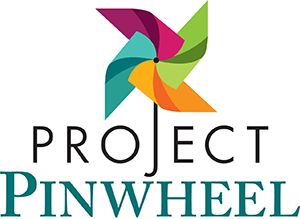Sexually abused children rarely talk about their abuse. Children are afraid of disappointing their parents, or disrupting their family situations. They may have been threatened or made to feel responsible.
Sexual abuse can include a variety of touching and non-touching behaviors, which may or may not leave physical signs. Emotional signs are often more noticeable than physical signs.
Emotional and mental health problems are often the first sign of child sexual abuse. When you spot changes in behavior, especially abrupt changes in behavior, try to understand what is causing them. While the change could be a result of stress coming from other sources (like divorce or a death in the family), it is important to be asking questions.
Concerning behavioral signs
- Excessive crying
- Nightmares or sleep disturbances/difficulty falling asleep
- Eating disturbances/disorders/increase or decrease in appetite
- Trouble swallowing
- Bowel problems
- Communication pattern change (i.e. talkative to quiet) possibly associated when a particular person is present
- Regression to earlier behaviors (clinging/bed wetting/stranger anxiety/thumb sucking)
- New fears
- Excessive masturbation that can’t be redirected(ages 3 to 9)
- Sexual interest/play/knowledge/behavior/language that is not age appropriate Click to see to Common vs. Concerning Sexual Behaviors in Children
- Sudden self-consciousness about genitals
- Promiscuity/early pregnancy (teens)
- Withdrawal from friends/family
- Aggression/destructiveness/anger/irritable
- Mood swings
- Substance abuse problems (the most common consequence of sexual abuse in teens)
- Victimization of others
- Depression/low self esteem
- Fear of particular people, places or activities
- Change in school performance/discipline problems
- Self injury or suicide attempts
- Running away
Concerning Physical Signs
Physical signs of sexual abuse are rare. If you see these signs, bring your child to a pediatrician who can clarify what might be happening:
- Pain, itching, bleeding or bruises in genital or anus area
- Roughened or calloused area between a baby’s buttocks
- Unexplained injuries around the mouth
- Frequent genital or urinary tract infections or irritations
- Persistent or recurring pain during urination and bowel movements
- STI’s (sexually transmitted infections)
- Torn, stained or bloody underclothing
- A general increase in physical complaints with physical symptoms such as headaches and stomach aches can be an indicator of the anxiety, confusion, anger, fear and shame that can be brought on by sexual abuse. They can also be associated with many other stresses that children experience.
If you do observe these signs and are concerned that your child might have been sexually abused, you can find information about available resources in the GET HELP and GET CONNECTED section of this website.

